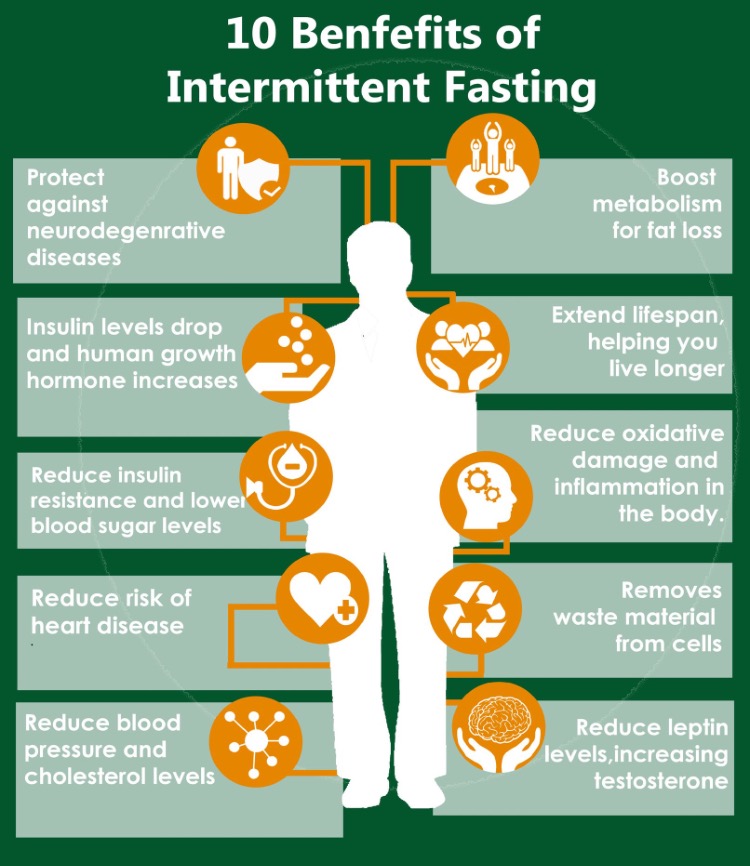Time Restricted Eating and Intermittent Fasting: Mounting Medical Evidences Shows That It The Way Forward Towards A Health Lifestyle
Source: Thailand Medical News Dec 26, 2019 6 years, 1 month, 1 week, 1 day, 12 hours, 38 minutes ago
In a new review article published in the Dec. 26 issue of The
New England Journal of Medicine, Johns Hopkins Medicine neuroscientist Dr Mark Mattson, Ph.D., concludes that
intermittent fasting and
time restricted eating not only has many medical and health merits but should be adopted regimen of a healthy lifestyle.

Dr Mattson, who has studied the health impact of
intermittent fasting for 25 years, and adopted it himself about 20 years ago, told
Thailand Medical News, "intermittent fasting should be part of a healthy lifestyle." A professor of neuroscience at the Johns Hopkins University School of Medicine, Mattson says his new article is intended to help clarify the science and clinical applications of intermittent fasting in ways that may help physicians guide patients who want to try it.
Dr Mattson explained that
intermittent fasting diets fall generally into two categories: daily
time restricted eating, which narrows eating times to 6-8 hours per day, and so-called 5:2
intermittent fasting, in which people limit themselves to one moderate-sized meal two days each week.
A wide array of clinical studies have shown that alternating between times of fasting and eating supports cellular health, probably by triggering an age-old adaptation to periods of food scarcity called metabolic switching. Such a switch occurs when cells use up their stores of rapidly accessible, sugar-based fuel, and begin converting fat into energy in a slower metabolic process.
Dr Mattson says studies have shown that this switch improves blood sugar regulation, increases resistance to stress and suppresses inflammation. Because most Americans eat three meals plus snacks each day, they do not experience the switch, or the suggested benefits.
In the published article, Mattson notes that four studies in both animals and people found
intermittent fasting also decreased blood pressure, blood lipid levels and resting heart rates.
More evidence is also mounting that
intermittent fasting can modify risk factors associated with obesity and diabetes, says Mattson. Two studies at the University Hospital of South Manchester NHS Foundation Trust of 100 overweight women showed that those on the 5:2
intermittent fasting diet lost the same amount of weight as women who restricted calories, but did better on measures of insulin sensitivity and reduced belly fat than those in the calorie-reduction group.
Recently, Mattson says, preliminary studies suggest that
intermittent fasting could benefit brain health too. A multicenter clinical trial at the University of Toronto in April found that 220 healthy, non-obese adults who maintained a calorie restricted diet for two years showed signs of improved memory in a battery of cognitive tests. While far more research needs to be done to prove any effects of
intermittent fasting on learning and memory, Dr Mattson says if that proof is found, the fasting or a pharmaceutical equivalent that mimics it may offer interventions that can stave off neurodegeneration and dementia.
t;
He added, "We are at a transition point where we could soon consider adding information about
intermittent fasting to medical school curricula alongside standard advice about healthy diets and exercise."
Dr Mattson acknowledges that researchers do "not fully understand the specific mechanisms of metabolic switching and that "some people are unable or unwilling to adhere" to the fasting regimens. But he argues that with guidance and some patience, most people can incorporate them into their lives. It takes some time for the body to adjust to
intermittent fasting, and to get beyond initial hunger pangs and irritability that accompany it.
"Patients should be advised that feeling hungry and irritable is common initially and usually passes after two weeks to a month as the body and brain become accustomed to the new habit," Dr Mattson says.
To overcome this hurdle, Dr Mattson suggests that physicians advise patients to gradually increase the duration and frequency of the fasting periods over the course of several months, instead of "going cold turkey." As with all lifestyle changes, says Dr Mattson, it's important for physicians to know the science so they can communicate potential benefits, harms and challenges, and offer support.
According to many medical and dietary experts,
intermittent fasting and
time restricted eating will be the buzzwords in the health industry for 2020.
Reference : Effects of Intermittent Fasting on Health, Aging, and Disease
Rafael de Cabo, Ph.D., and Mark P. Mattson, Ph.D.,December 26, 2019, N Engl J Med 2019; 381:2541-2551
DOI: 10.1056/NEJMra1905136,https://www.nejm.org/doi/full/10.1056/NEJMra1905136?query=featured_home
